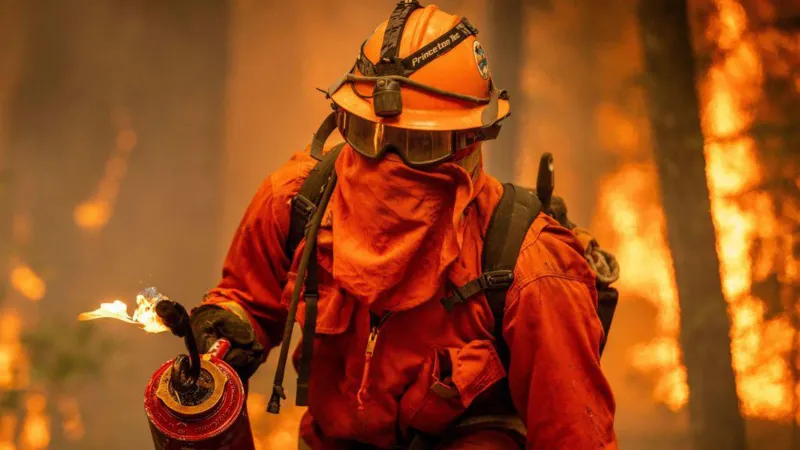Across California, hundreds of incarcerated individuals step forward each year to join the state’s firefighting efforts, risking their lives on the frontlines of dangerous wildfires. These inmate firefighters, part of the California Department of Corrections and Rehabilitation’s (CDCR) Conservation Camp Program, work tirelessly to protect communities, forests, and infrastructure from devastating blazes.
For many, this experience is a chance to give back to society and find purpose while serving their sentences. Working alongside professional firefighters, they clear brush, dig firebreaks, and combat active flames. In exchange, they earn a small daily wage and the opportunity for sentence reductions. Despite these incentives, the work is grueling and perilous, requiring physical strength, endurance, and immense courage.
However, beyond the physical challenges lies a deeper, more pervasive obstacle: societal stigma. Incarcerated individuals who participate in these programs often find their contributions undervalued or dismissed due to their criminal records. Even after their release, many face significant barriers to entering firefighting as a career. In California, licensing restrictions and hiring policies often exclude those with felony convictions, limiting their opportunities to leverage the skills and experience gained during their time as inmate firefighters.
Advocates for criminal justice reform argue that these individuals deserve a second chance, especially considering the critical role they play in wildfire suppression efforts. In recent years, initiatives have been introduced to help former inmate firefighters transition into professional firefighting roles post-release. Programs like the Ventura Training Center provide advanced firefighting training and job placement support, aiming to break down barriers and reduce recidivism.
While the stigma surrounding inmate firefighters persists, their bravery and contributions remain undeniable. These men and women work under extreme conditions, saving lives and property while fighting some of the most destructive fires in the world. As California faces an increasing number of wildfires due to climate change, the need for skilled and dedicated firefighters—regardless of their background—has never been more critical.
The story of California’s inmate firefighters is one of resilience, redemption, and the ongoing struggle to challenge societal perceptions. It highlights the transformative power of meaningful work and raises important questions about rehabilitation, reintegration, and the value of second chances in a society grappling with complex issues of justice and equity.




















